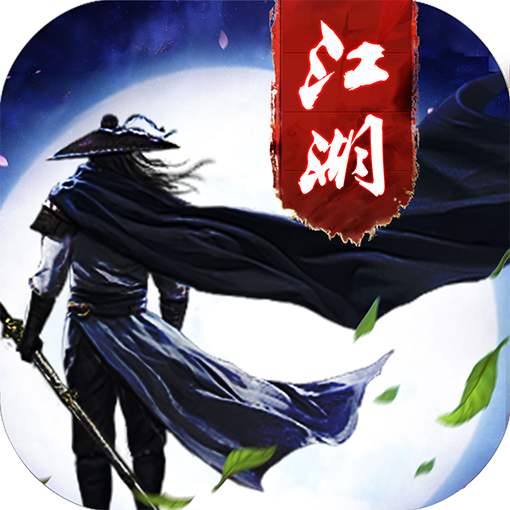001 Love your neighbor as yourself.
要爱人如己。--《旧·利》19:18
002 Resentment kills a fool, and envy slays the simple.
忿怒害死愚妄人,嫉妒杀死痴迷人。--《旧·伯》5:2
003 Does a wild donkey bray when it has grass, or an ox bellow when it has fodder?
野驴有草岂能叫唤,牛有料,岂能吼叫。--《旧·伯》6:5
004 I will speak out in the anguish of my spirit, I will complain in the bitterness of my soul.
我灵愁苦,要发出言语。我心苦恼,要吐露哀情。--《旧·伯》7:11
005 Can papyrus grow tall where there is no marsh? Can reeds thrive without water?
蒲草没有泥,岂能发长。芦荻没有水,岂能生发。--《旧·伯》8:11
006 Is not wisdom found among the aged? Does not long life bring understanding?
年老的有智慧,寿高的有知识。--《旧·伯》12:12
007 The lamp of the wicked is snuffed out; the flame of his fire stops burning.
恶人的亮光必要熄灭。他的火焰必不照耀。--《旧·伯》18:5
008 that the mirth of the wicked is brief, the joy of the godless lasts but a moment.
恶人夸胜是暂时的,不敬虔人的喜乐,不过转眼之间。--《旧·伯》20:5
009 There is a mine for silver and a place where gold is refined. Iron is taken from the earth, and copper is smelted from ore.
银子有矿,炼金有方。铁从地里挖出,铜从石中溶化。--《旧·伯》28:1、2
010 Man does not comprehend its worth.
智慧的价值无人能知。--《旧·伯》28:13
011 The price of wisdom is beyond rubies.
智慧的价值胜过珍珠。--《旧·伯》28:18
012 To shun evil is understanding.
远离恶便是聪明。--《旧·伯》28:28
013 It is not only the old who are wise, not only the aged who understand what is right.
尊贵的不都有智慧。寿高的不都能明白公平。--《旧·伯》32:9
014 Surely no one lays a hand on a broken man when he cries for help in his distress.
人仆倒岂不伸手?遇灾难岂不求救呢?--《旧·伯》30:24
015 Age should speak; advanced years should teach wisdom.
年老的当先说话。寿高的当以智慧教训人。--《旧·伯》32:7
016 For the ear tests words as the tongue tastes food.
耳朵试验话语,好像上膛尝食物。--《旧·伯》34:3
017 Blessed is the man who does not walk in the counsel of the wicked or stand in the way of sinners or sit in the seat of mockers.
不从恶人的计谋,不站罪人的道路,不坐亵慢人的座位。--《旧·诗》1:1
018 He is like a tree planted by streams of water, which yields its fruit in season and whose leaf does not wither.
要像一棵树栽在溪水旁,按时候结果子,叶子也不枯干。--《旧·诗》1:3
019 He who is pregnant with evil and conceives trouble gives birth to disillusionment.
恶人因奸恶而劬劳。所怀的是毒害,所生的是虚假。--《旧·诗》7:14
020 like silver refined in a furnace of clay, purified seven times.
纯净的言语,如同银子在泥炉中炼过七次。--《旧·诗》12:6
021 The wicked freely strut about when what is vile is honored among men.
下流人在世人中升高,就有恶人到处游行。--《旧·诗》12:8
022 Has no slander on his tongue, who does his neighbor no wrong and casts no slur on his fellowman,
不以舌头谗谤人,不恶待朋友,也不随夥毁谤邻里。--《旧·诗》15:3
023 Do not be like the horse or the mule, which have no understanding but must be controlled by bit and bridle or they will not come to you.
不可像那无知的骡马,必用嚼环辔头勒住他,不然,就不能顺服。--《旧·诗》32:9
024 No king is saved by the size of his army; no warrior escapes by his great strength.
君王不能因兵多得胜。勇士不能因力大得救。--《旧·诗》33:16
025 Whoever of you loves life and desires to see many good days, keep your tongue from evil and your lips from speaking lies.
有何人喜好存活,爱慕长寿,得享美福,就要禁止舌头不出恶言,嘴唇不说诡诈的话。--《旧·诗》34:12、13
026 A righteous man may have many troubles.
义人多有苦难。--《旧·诗》34:19
027 Refrain from anger and turn from wrath; do not fret-it leads only to evil.
当止住怒气,离弃忿怒。不要心怀不平,以致作恶。--《旧·诗》37:8
028 For evil men will be cut off,
作恶的,必被剪除。--《旧·诗》37:9
029 Better the little that the righteous have than the wealth of many wicked.
一个义人所有的虽少,强过许多恶人的富馀。--《旧·诗》37:16
030 The wicked borrow and do not repay, but the righteous give generously.
恶人借货而不偿还。义人却恩待人,并且施舍。--《旧·诗》37:21
031 Turn from evil and do good; then you will dwell in the land forever.
离恶行善,就可永远安居。--《旧·诗》37:27
032 the righteous will inherit the land and dwell in it forever.
义人必承受地土,永居其上。--《旧·诗》37:29
033 The mouth of the righteous man utters wisdom, and his tongue speaks what is just.
义人的口谈论智慧,他的舌头讲说公平。--《旧·诗》37:30
034 As the deer pants for streams of water, so my soul pants for you.
我的心切慕你,如鹿切慕溪水。--《旧·诗》42:1
035 A man who has riches without understanding is like the beasts that perish.
人在尊贵中,而不醒悟,就如死亡的畜类一样。--《旧·诗》49:20
036 show no mercy to wicked traitors.
不要怜悯行诡诈的恶人。--《旧·诗》59:5
037 Defend the cause of the weak and fatherless; maintain the rights of the poor and oppressed.
当为贫寒的人和孤儿伸冤。当为困苦和穷乏的人施行公义。--《旧·诗》82:3
038 Love and faithfulness meet together; righteousness and peace kiss each other.
慈爱和诚实,彼此相遇。公义和平安,彼此相亲。--《旧·诗》85:10
039 How long will you simple ones love your simple ways? How long will mockers delight in mockery?
愚昧人喜爱愚昧,亵慢人喜欢亵慢。--《旧·箴》1:22
040 turning your ear to wisdom and applying your heart to understanding,
侧耳听智慧,专心求聪明。--《旧·箴》2:2
041 For the waywardness of the simple will kill them, and the complacency of fools will destroy them.
愚昧人背道,必杀己身,愚顽人安逸,必害己命。--《旧·箴》1:32
042 For she is more profitable than silver and yields better returns than gold.
因为得智慧胜过得银子,其利益强如精金。--《旧·箴》3:14
043 Seven that are detestable to him: haughty eyes, a lying tongue, hands that shed innocent blood, a heart that devises wicked schemes, feet that are quick to rush into evil, a false witness who pours out lies and a man who stirs up dissension among brothers.
心所憎恶的共有七样,就是:高傲的眼,撒谎的舌,流无辜人血的手,图谋恶计的心,飞跑行恶的脚,吐谎言的假见证,并弟兄中布散分争的人。--《旧·箴》6:16-19
044 Wisdom, dwell together with prudence; I possess knowledge and discretion.
智慧以灵明为居所,又寻得知识和谋略。--《旧·箴》8:12
045 Stolen water is sweet; food eaten in secret is delicious!
偷来的水是甜的,暗吃的饼是好的。--《旧·箴》9:17
046 He who gathers crops in summer is a wise son, but he who sleeps during harvest is a disgraceful son.
夏天聚敛的,是智慧之子。收割时沉睡的,是贻羞之子。--《旧·箴》10:5
047 The man of integrity walks securely, but he who takes crooked paths will be found out.
行正直路的,步步安稳。走弯曲道的,必致败露。--《旧·箴》10:9
048 Love covers over all wrongs.
爱能遮掩一切过错。--《旧·箴》10:12
049 The wages of the righteous bring them life, but the income of the wicked brings them punishment.
义人的勤劳致生,恶人的进项致死。--《旧·箴》10:16
050 When pride comes, then comes disgrace.
骄傲来,羞耻也来。--《旧·箴》11:2
051 The integrity of the upright guides them, but the unfaithful are destroyed by their duplicity.
正直人的纯正,必引导自己。奸诈人的乖僻,必毁灭自己。--《旧·箴》11:3
052 When a wicked man dies, his hope perishes.
恶人一死,他的指望必灭绝。--《旧·箴》11:7
053 When the righteous prosper, the city rejoices; when the wicked perish, there are shouts of joy.
义人享福合城喜乐,恶人灭亡人都欢呼。--《旧·箴》11:10
054 A kind man benefits himself, but a cruel man brings trouble on himself.
仁慈的人,善待自己。残忍的人,扰害己身。--《旧·箴》11:17
055 Like a gold ring in a pig's snout is a beautiful woman who shows no discretion.
妇女美貌而无见识,如同金环带在猪鼻上。--《旧·箴》11:22
056 Whoever loves discipline loves knowledge.
喜爱管教的,就是喜爱知识。--《旧·箴》12:1
057 Truthful lips endure forever, but a lying tongue lasts only a moment.
口吐真言,永远坚立。舌说谎话,只存片时。--《旧·箴》12:19
058 He who guards his lips guards his life, but he who speaks rashly will come to ruin.
谨守口的,得保生命。大张嘴的,必致败亡。--《旧·箴》13:3
059 Where there are no oxen, the manger is empty.
家里无牛,槽头干净。--《旧·箴》14:4
060 Joy may end in grief.
快乐至极,就生愁苦。--《旧·箴》14:13
061 A simple man believes anything, but a prudent man gives thought to his steps.
愚蒙人是话都信,通达人处处谨慎。--《旧·箴》14:15
062 A quick-tempered man does foolish things, and a crafty man is hated.
轻易发怒的,行事愚妄。设立诡计的,被人恨恶。--《旧·箴》14:17
063 The simple inherit folly, but the prudent are crowned with knowledge.
愚蒙人得愚昧为产业。通达人得知识为冠冕。--《旧·箴》14:18
064 A large population is a king's glory, but without subjects a prince is ruined.
帝王荣耀在乎民多,君王衰败在乎民少。--《旧·箴》14:28
065 A patient man has great understanding, but a quick-tempered man displays folly.
不轻易发怒的,大有聪明。性情暴躁的,大显愚妄。--《旧·箴》14:29
066 Better a meal of vegetables where there is love than a fattened calf with hatred.
吃素菜彼此相爱,强如吃肥牛彼此相恨。--《旧·箴》15:17
067 Folly delights a man who lacks judgment, but a man of understanding keeps a straight course.
无知的人,以愚妄为乐。聪明的人,按正直而行。--《旧·箴》15:21
068 How good is a timely word!
谋士众多,所谋乃成。--《旧·箴》15:22
069 Pride goes before destruction, a haughty spirit before a fall.
骄傲在败坏以先,狂心在跌倒之前。--《旧·箴》16:18
070 A perverse man stirs up dissension, and a gossip separates close friends.
乖僻人播散分争。传舌的离间密友。--《旧·箴》16:28
071 Better a dry crust with peace and quiet than a house full of feasting, with strife.
设筵满屋,大家相争,不如有块乾饼,大家相安。--《旧·箴》17:1
072 A wicked man listens to evil lips; a liar pays attention to a malicious tongue.
行恶的留心听奸诈之言。说谎的侧耳听邪恶之语。--《旧·箴》17:4
073 Children's children are a crown to the aged, and parents are the pride of their children.
子孙为老人的冠冕,父亲是儿女的荣耀。--《旧·箴》17:6
074 Better to meet a bear robbed of her cubs than a fool in his folly.
宁可遇见丢崽子的母熊,不可遇见正行愚妄的愚昧人。--《旧·箴》17:12
075 If a man pays back evil for good, evil will never leave his house.
以恶报善的,祸患必不离他的家。--《旧·箴》17:13
076 A man of perverse heart does not prosper; he whose tongue is deceitful falls into trouble.
心存邪僻的,寻不着好处。舌弄是非的,陷在祸患中。--《旧·箴》17:20
077 It is not good to punish an innocent man, or to flog officials for their integrity.
判罚义人为不善,责打君子为不义。--《旧·箴》17:26
078 Even a fool is thought wise if he keeps silent, and discerning if he holds his tongue.
愚昧人若静默不言,也可算为智慧。闭口不说,也可算为聪明。--《旧·箴》17:28
079 A fool finds no pleasure in understanding ,but delights in airing his own opinions.
愚昧人不喜爱明哲,只喜爱显露心意。--《旧·箴》18:2
080 When wickedness comes, so does contempt, and with shame comes disgrace.
恶人来,藐视随来。羞耻到,辱骂同到。--《旧·箴》18:3
081 A fool's lips bring him strife, and his mouth invites a beating.
愚昧人张嘴启争端,开口招鞭打。--《旧·箴》18:6
101 Better is open rebuke than hidden love.
当面的责备,强如背地的爱情。--《旧·箴》27:5
102 Wounds from a friend can be trusted, but an enemy multiplies kisses.
朋友加的伤痕,出於忠诚,仇敌连连亲嘴,却是多馀。--《旧·箴》27:6
103 He who is full loathes honey, but to the hungry even what is bitter tastes sweet.
人吃饱了,厌恶蜂房的蜜。人饥饿了,一切苦物都觉甘甜。--《旧·箴》27:7
104 A neighbor nearby than a brothe* **r away.
相近的邻舍,强如远方的弟兄。--《旧·箴》27:10
105 As iron sharpens iron, so one man sharpens another.
铁磨铁,磨出刃来。朋友相感,也是如此。--《旧·箴》27:17
106 The crucible for silver and the furnace for gold, but man is tested by the praise he receives.
鼎为炼银,炉为炼金,人的称赞也试炼人。--《旧·箴》27:21
107 When the hay is removed and new growth appears.
干草割去,嫩草发现,--《旧·箴》27:25
108 The wicked man flees though no one pursues, but the righteous are as bold as a lion.
恶人虽无人追赶也逃跑,义人却胆壮像狮子。--《旧·箴》28:1
109 A ruler who oppresses the poor is like a driving rain that leaves no crops.
穷人欺压贫民,好像暴雨冲没粮食。--《旧·箴》28:3
110 Better a poor man whose walk is blameless than a rich man whose ways are perverse.
行为纯正的穷乏人,胜过行事乖僻的富足人。--《旧·箴》28:6
111 He who leads the upright along an evil path will fall into his own trap.
诱惑正直人行恶道的,必掉在自己的坑里。--《旧·箴》28:10
112 He who works his land will have abundant food, but the one who chases fantasies will have his fill of poverty.
耕种自己田地的,必得饱食。追随虚浮的,足受穷乏。--《旧·箴》28:19
113 He who trusts in himself is a fool.
心中自是的,便是愚昧人。--《旧·箴》28:26
114 Whoever flatters his neighbor is spreading a net for his feet.
谄媚邻舍的,就是设网罗绊他的脚。--《旧·箴》29:5
115 Mockers stir up a city, but wise men turn away anger.
亵慢人煽惑通城,智慧人止息众怒。--《旧·箴》29:8
116 A child left to himself disgraces his mother.
放纵的儿子,使母亲羞愧。--《旧·箴》29:15
117 A man's pride brings him low, but a man of lowly spirit gains honor.
人的高傲,必使他卑下。心里谦逊的,必得尊荣。--《旧·箴》29:23
118 The accomplice of a thief is his own enemy.
与盗贼分赃,是恨恶自己的性命。--《旧·箴》29:24
119 The righteous detest the dishonest; the wicked detest the upright.
为非作歹的,被义人憎嫌。行事正直的,被恶人憎恶。--《旧·箴》29:27
120 Ants are creatures of little strength, yet they store up their food in the summer; coneys are creatures of little power, yet they make their home in the crags.
蚂蚁是无力之类,却在夏天豫备粮食。沙番是软弱之类,却在磐石中造房。--《旧·箴》30:25、26
161 Neither do people light a lamp and put it under a bowl. Instead they put it on its stand, and it gives light to everyone in the house.
人点灯,不放在斗底下,是放在灯台上,就照亮一家的人。--《新·太》5:15
162 Anyone who murders will be subject to judgment.
凡杀人的,难免受审判。--《新·太》5:21
163 Eye for eye, and tooth for tooth.
以眼还眼,以牙还牙。--《新·太》5:38
164 If someone strikes you on the right cheek, turn to him the other also.
有人打你的右脸,连左脸也转过来由他打。--《新·太》5:39
165 If someone wants to sue you and take your tunic, let him have your cloak as well.
有人想要告你,要拿你的里衣,连外衣也由他拿去。--《新·太》5:40
166 If someone forces you to go one mile, go with him two miles.
有人强逼你走一里路,你就同他走二里。--《新·太》5:41
167 Give to the one who asks you, and do not turn away from the one who wants to borrow from you.
有求你的,就给他。有向你借贷的,不可推辞。--《新·太》5:42
168 Love your neighbor and hate your enemy.
当爱你的邻舍,恨你的仇敌。--《新·太》5:43
169 Sun to rise on the evil and the good, and sends rain on the righteous and the unrighteous.
日头照好人,也照歹人,降雨给义人,也给不义的人。--《新·太》5:45
170 Not to do your 'acts of righteousness' before men.
不可将善事行在人的面前。--《新·太》6:1
171 When you give to the needy, do not announce it with trumpets.
你施舍的时候,不可在你前面吹号,--《新·太》6:2
172 When you give to the needy, do not let your left hand know what your right hand is doing.
你施舍的时候,不要叫左手知道右手所作的。--《新·太》6:3
173 When you pray, go into your room.
要叫你施舍的事行在暗中--《新·太》6:4
174 Forgive us our debts, as we also have forgiven our debtors.
免我们的债,如同我们免了人的债。--《新·太》6:12
175 The eye is the lamp of the body. If your eyes are good, your whole body will be full of light.
眼睛就是身上的灯。你的眼睛若了亮,全身就光明。--《新·太》6:22
176 If your eyes are bad, your whole body will be full of darkness.
你的眼睛若昏花,全身就黑暗。--《新·太》6:23
177 Each day has enough trouble of its own.
一天的难处一天当--《新·太》6:34
178 Do not judge, or you too will be judged.
你们不要论断人,免得你们被论断。--《新·太》7:1
179 For in the same way you judge others, you will be judged.
因为你们怎样论断人,也必怎样被论断。--《新·太》7:2
180 Why do you look at the speck of sawdust in your brother's eye and pay no attention to the plank in your own eye?
为甚麽看见你弟兄眼中有刺,却不想自己眼中有梁木呢。--《新·太》7:3
181 How can you say to your brother, 'Let me take the speck out of your eye,' when all the time there is a plank in your own eye?
你自己眼中有梁木,怎能对你弟兄说,容我去掉你眼中的刺呢。--《新·太》7:4
182 First take the plank out of your own eye, and then you will see clearly to remove the speck from your brother's eye.
先去掉自己眼中的梁木,然後才能看得清楚,去掉你弟兄眼中的刺。--《新·太》7:5
183 Do not give dogs what is sacred; do not throw your pearls to pigs.
不要把圣物给狗,也不要把你们的珍珠丢在猪前。--《新·太》7:6
184 For everyone who asks receives.
凡祈求的就得着。--《新·太》7:8
185 If his son asks for bread, will give him a stone? Or if he asks for a fish, will give him a snake?
谁有儿子求饼,反给他石头呢?求鱼,反给他蛇呢?--《新·太》7:9、10
186 For wide is the gate and broad is the road that leads to destruction, and many enter through it.
引到灭亡,那门是宽的,路是大的,进去的人也多。--《新·太》7:13
187 Small is the gate and narrow the road that leads to life, and only a few find it.
引到永生,那门是窄的,路是小的,找著的人也少。--《新·太》7:14
188 They come to you in sheep's clothing, but inwardly they are ferocious wolves.
外面披著羊皮,里面却是残暴的狼。--《新·太》7:15
189 By their fruit you will recognize them.
凭著他们的果子,就可以认出他们来。--《新·太》7:16
190 Do people pick grapes from thornbushes, or figs from thistles?
荆棘上岂能摘葡萄呢。蒺藜里岂能摘无花果呢。--《新·太》7:16
191 A wise man who built his house on the rock.
一个聪明人,把房子盖在磐石上。--《新·太》7:24
192 A foolish man who built his house on sand.
无知的人,把房子盖在沙土上。--《新·太》7:26
193 Let the dead bury their own dead.
任凭死人埋葬他们的死人。--《新·太》8:22
194 How can the guests of the bridegroom mourn while he is with them?
新郎和陪伴之人同在的时候,陪伴之人岂能哀恸呢。--《新·太》9:15
195 No one sews a patch of unshrunk cloth on an old garment, for the patch will pull away from the garment, ****** the tear worse.
没有人把新布补在旧衣服上。因为所补上的,反带坏了那衣服,破的就更大了。--《新·太》9:16
196 Neither do men pour new wine into old wineskins. If they do, the skins will burst, the wine will run out and the wineskins will be ruined.
没人把新酒装在旧皮袋里。若是这样,皮袋就裂开,酒漏出来,连皮袋也坏了。--《新·太》9:17
197 Freely you have received, freely give.
白白的得来,也要白白的舍去。--《新·太》10:8
198 Therefore be as shrewd as snakes and as innocent as doves.
灵巧像蛇,驯良像鸽子。--《新·太》10:16
199 A student is not above his teacher, nor a servant above his master.
学生不能高过先生,仆人不能高过主人。--《新·太》10:24
200 There is nothing concealed that will not be disclosed, or hidden that will not be made known.
掩盖的事,没有不露出来的。隐藏的事,没有不被人知道的。--《新·太》10:26
201 In the dark, speak in the daylight.
暗中告诉你们的,你们要在明处说出来。--《新·太》10:27
202 Whoever finds his life will lose it.
得着生命的,将要失丧生命。--《新·太》10:39
203 He who has ears, let him hear.
有耳可听的,就应当听。--《新·太》11:15
204 Wisdom is proved right by her actions.
智慧之子,总以智慧为是。--《新·太》11:19
205 What goes into a man's mouth does not make him 'unclean,' but what comes out of his mouth, that is what makes him 'unclean.'
入口的不能污秽人,出口的乃能污秽人。--《新·太》15:11
206 If a blind man leads a blind man, both will fall into a pit.
若是瞎子领瞎子,两个人都要掉在坑里。--《新·太》15:14
207 It is hard for a rich man to enter the kingdom of heaven.
财主进天国是难的。--《新·太》19:23
208 It is easier for a camel to go through the eye of a needle than for a rich man to enter the kingdom of God.
骆驼穿过针的眼,比财主进神的国还容易呢。--《新·太》19:24
209 Give to Caesar what is Caesar's, and to God what is God's.
该撒的物当归给该撒,神的物当归给神。--《新·太》22:21
210 For whoever exalts himself will be humbled, and whoever humbles himself will be exalted.
凡自高的必降为卑,自卑的必升为高。--《新·太》23:12
211 First clean the inside of the cup and dish, and then the outside also will be clean.
先洗净杯盘的里面,好叫外面也乾净了。--《新·太》23:26
212 You are like whitewashed tombs, which look beautiful on the outside but on the inside are full of dead men's bones and everything unclean.
粉饰的坟墓,外面好看,里面却装满了死人的骨头,和一切的污秽。--《新·太》23:27
213 He who stands firm to the end will be saved.
惟有忍耐到底的,必然得救。--《新·太》24:13
214 For everyone who has will be given more, and he will have an abundance. Whoever does not have, even what he has will be taken from him.
凡有的,还要加给他,叫他有馀。没有的,连他所有的,也要夺过来。--《新·太》25:29
215 for all who draw the sword will die by the sword.
凡动刀的,必死在刀下。--《新·太》26:52
216 It is not the healthy who need a doctor.
健康的人用不著医生。--《新·可》2:17
217 In fact, no one can enter a strong man's house.
没有人能进壮士家里抢夺他的家具。--《新·可》3:27
218 For whatever is hidden is meant to be disclosed, and whatever is concealed is meant to be brought out into the open.
掩藏的事,没有不显出来的。隐瞒的事,没有不露出来的。--《新·可》4:22
219 With the measure you use, it will be measured to you–and even more.
你们用甚麽量器量给人,也必用甚麽量器量给你们,并且要多给你们。--《新·可》4:24
220 As soon as the grain is ripe, he puts the sickle to it.
谷既熟了,就用镰刀去割。--《新·可》4:29
221 For whoever wants to save his life will lose it.
凡救自己生命的,必丧掉生命。--《新·可》8:35
222 If anyone wants to be first, he must be the very last, and the servant of all.
有人愿意作首先的,他必作众人末後的,作众人的用人。--《新·可》9:35
223 For whoever is not against us is for us.
不敌挡我们的,就是帮助我们的。--《新·可》9: 40
224 It is better for you to enter life maimed than with two hands to go into hell, where the fire never goes out.
缺了肢体进入永生,强如有两只手落到地狱,入那不灭的火里去。--《新·可》9:44
225 It is better for you to enter life crippled than to have two feet and be thrown into hell.
瘸腿进入永生,强如有两只脚被丢在地狱里。--《新·可》9:46
226 Many who are first will be last, and the last first.
有许多在前的将要在後,在後的将要在前。--《新·可》10:31
227 Whoever wants to be first must be slave of all.
谁愿为首,就必作众人的仆人。--《新·可》10:44
228 Don't extort money and don't accuse people falsely.
不要以强暴待人,也不要讹诈人,--《新·路》3:14
229 Do to others as you would have them do to you.
你们愿意人怎样待你们,你们也要怎样待人。--《新·路》6:31
230 Even 'sinners' love those who love them.
罪人也爱那爱他们的人。--《新·路》6:32
231 Lend to them without expecting to get anything back.
要借给人不指望偿还。--《新·路》6:35
232 Forgive, and you will be forgiven.
要饶恕人,就必蒙饶恕。--《新·路》6:37
233 Do not judge, and you will not be judged.
不要论断人,就不被论断。--《新·路》6:37
234 Do not condemn, and you will not be condemned.
不要定人的罪,就不被定罪。--《新·路》6:37
235 Give, and it will be given to you.
你们要给人,就必有给你们的。--《新·路》6:38
236 No good tree bears bad fruit, nor does a bad tree bear good fruit.
没有好树结坏果子。也没有坏树结好果子。--《新·路》6:43
237 For out of the overflow of his heart his mouth speaks.
心里所充满的,口里就说出来。--《新·路》6:45
238 He who has been forgiven little loves little.
赦免少的,他的爱就少。--《新·路》7:47
239 No one who puts his hand to the plow and looks back is fit for service in the kingdom of God.
手扶著犁向後看的,不配进神的国。--《新·路》9:62
240 For the worker deserves his wages.
工人得工价,是应当的。--《新·路》10:7
241 Any kingdom divided against itself will be ruined, and a house divided against itself will fall.
凡一国自相分争,就成为荒场。凡一家自相分争,就必败落。--《新·路》11:17
242 He who is not with me is against me.
不与我相合的,就是敌我的。--《新·路》11:23
243 A man's life does not consist in the abundance of his possessions.
人的生命,不在乎家道丰富。--《新·路》12:15
244 Life is more than food, and the body more than clothes.
生命胜於饮食,身体胜於衣裳。--《新·路》12:23
245 From everyone who has been given much, much will be demanded.
多给谁,就向谁多取。--《新·路》12:48
246 From the one who has been entrusted with much, much more will be asked.
多托谁,就向谁多要。--《新·路》12:48
247 Whoever can be trusted with very little can also be trusted with much, and whoever is dishonest with very little will also be dishonest with much.
人在最小的事上忠心,在大事上也忠心。在最小的事上不义,在大事上也不义。--《新·路》16:10
248 Where there is a dead body, there the vultures will gather.
尸首在那里,鹰也必聚在那里。--《新·路》17:37
249 Everyone who does evil hates the light.
凡作恶的便恨光。--《新·约》3:20
250 He can do only what he sees his Father doing, because whatever the Father does the Son also does.
看见父所作的,子才能作。父所作的事,子也照样作。--《新·约》5:19
251 Those who have done good will rise to live, and those who have done evil will rise to be condemned.
行善的复活得生,作恶的复活定罪。--《新·约》5:29
252 Stop judging by mere appearances, and make a right judgment.
不可按外貌断定是非,总要按公平断定是非。--《新·约》7:24
253 The testimony of two men is valid.
两个人的见证是真的。--《新·约》8:17
254 Everyone who sins is a slave to sin.
所有犯罪的,就是罪的奴仆。--《新·约》8:34
255 The good shepherd lays down his life for the sheep.
好牧人为羊舍命。--《新·约》10:11
256 A man who walks by day will not stumble.
人在白日走路,就不至跌倒。--《新·约》11:9
257 Walk while you have the light, before darkness overtakes you.
应当趁著有光行走,免得黑暗临到你们。--《新·约》12:35
258 Although they claimed to be wise, they became fools.
自称为聪明,反成了愚拙。--《新·罗》1:22
259 You, then, who teach others, do you not teach yourself? You who preach against stealing, do you steal?
你既是教导别人,还不教导自己么?你讲说人不可偷窃,自己还偷窃么?--《新·罗》2:21
260 Suffering produces perseverance; perseverance, character.
患难生忍耐,忍耐生老练。--《新·罗》5:3、4
261 If it is leadership, let him govern diligently.
治理的,就当殷勤。--《新·罗》12:8
262 Be joyful in hope, patient in affliction.
在指望中要喜乐。在患难中要忍耐。--《新·罗》12:12
263 Do not be conceited.
不要自以为聪明。--《新·罗》12:16
264 Be careful to do what is right in the eyes of everybody.
众人以为美的事,要留心去作。--《新·罗》12:17
265 If it is possible, as far as it depends on you, live at peace with everyone.
若是能行,总要尽力与众人和睦。--《新·罗》12:18
266 Love does no harm to its neighbor.
爱是不加害与人的。--《新·罗》13:10
267 Put aside the deeds of darkness and put on the armor of light.
脱去暗昧的行为,带上光明的兵器。--《新·罗》13:12
268 Let us behave decently, as in the daytime, not in orgies and drunkenness.
行事为人要端正,好像行在白昼。--《新·罗》13:13
269 Not to put any stumbling block or obstacle in your brother's way.
不给弟兄放下绊脚人之物。--《新·罗》14:13
270 Let us therefore make every effort to do what leads to peace
务要追求和睦的事。--《新·罗》14:19
271 Wise about what is good, and innocent about what is evil.
在善事上聪明,在恶上愚拙。--《新·罗》16:19
272 Do not deceive yourselves.
人不可自欺。--《新·哥前》3:18
273 No more boasting about men!
不可拿人夸口。--《新·哥前》3:21
274 You have ten thousand guardians in Christ, you do not have many fathers.
师傅虽有一万,为父的却是不多。--《新·哥前》4:15
275 A little yeast works through the whole batch of dough.
一点面酵能使全团发起来--《新·哥前》5:6
276 Whoever sows sparingly will also reap sparingly, and whoever sows generously will also reap generously.
少种的少收,多种的多收。--《新·哥前》9:6
277 Though all its parts are many, they form one body.
肢体虽多,仍是一个身子。--《新·哥前》12:12
278 If the whole body were an eye, where would the sense of hearing be? If the whole body were an ear, where would the sense of smell be?
若全身是眼,从那里听声呢。若全身是耳,从那里闻味呢。--《新·哥前》12:17
279 While our presentable parts need no special treatment.
俊美的肢体,自然用不著装饰。--《新·哥前》12:24
280 In regard to evil be infants, but in your thinking be adults.
在恶事上要作婴孩,在心志上总要作大人。--《
281 For we cannot do anything against the truth, but only for the truth.
凡事不能敌挡真理,只能扶助真理。--《新·哥后》13:8
282 Does not judge by external appearance.
不以外貌取人。--《新·加》2:6
283 Having lost all sensitivity, they have given themselves over to sensuality so as to indulge in every kind of impurity, with a continual lust for more.
良心既然丧尽,就放纵私欲,贪行种种的污秽。--《新·弗》4:19
284 Therefore each of you must put off falsehood.
要弃绝谎言。--《新·弗》4:25
285 Do not let the sun go down while you are still angry.
不可含怒到日落。--《新·弗》4:26
286 Do not let any unwholesome talk come out of your mouths.
污秽的言语,一句不可出口。--《新·弗》4:29
287 Let no one deceive you with empty words.
不要被人虚浮的话欺哄。--《新·弗》5:6
288 Everything exposed by the light becomes visible。
凡事受了责备,就被光显明出来。--《新·弗》5:13
289 Do not get drunk on wine, which leads to debauchery.
不要醉酒,酒能使人放荡。--《新·弗》5:18
290 With the belt of truth buckled around your waist, with the breastplate of righteousness in place.
用真理当作带子束腰,用公义当作护心镜遮胸。--《新·弗》6:14
291 Each of you should look not only to your own interests, but also to the interests of others.
各人不要单顾自己的事,也要顾别人的事。--《新·腓》2:4
292 Forgetting what is behind and straining toward what is ahead.
忘记背後努力面前的。--《新·腓》3:13
293 Test everything. Hold on to the good.
凡事察验,善美的要持守。--《新·帖前》5:21
294 If a man will not work, he shall not eat.
若有人不肯作工,就不可吃饭。--《新·帖后》3:10
295 Never tire of doing what is right.
行善不可丧志。--《新·帖后》3:13
296 The hardworking farmer should be the first to receive a share of the crops.
劳力的农夫,理当先得粮食。--《新·提后》2:6
297 It is of no value, and only ruins those who listen.
不可为言语争辩,这事没有益处的。--《新·提后》2:14
298 Avoid godless chatter.
要远避世俗的虚谈。--《新·提后》2:16
299 Don't have anything to do with foolish and stupid arguments.
愚拙无学问的辩论,总要弃绝。--《新·提后》2:23
300 The builder of a house has greater honor than the house itself.
建造房屋的比房屋更尊荣。--《新·来》3:3
301 Keep on loving each other as brothers.
务要存弟兄相爱的心。--《新·来》13:1
302 The testing of you* **ith develops perseverance.
信心经过试验就生忍耐。--《新·雅》1:3
303 He who doubts is like a wave of the sea, blown and tossed by the wind.
疑惑的人,就像海中的波浪,被风吹动翻腾。--《新·雅》1:6
304 He is a double-minded man, unstable in all he does.
心怀二意的人,在他一切所行的路上,都没有定见。--《新·雅》1:8
305 When we put bits into the mouths of horses to make them obey us, we can turn the whole animal.
若把嚼环放在马嘴里,叫他顺服,就能调动他的全身。--《新·雅》3:3
306 The tongue is a small part of the body, but it makes great boasts.
舌头在百体里也是最小的,却能说大话。--《新·雅》3:5
307 A great forest is set on fire by a small spark.
最小的火能点著最大的树林。--《新·雅》3:5
308 Out of the same mouth come praise and cursing.
颂赞和咒诅从一个口里出来。--《新·雅》3:10
309 For where you have envy and selfish ambition, there you find disorder and every evil practice.
何处有嫉妒分争,就在何处有扰乱和各样的坏事。--《新·雅》3:16











